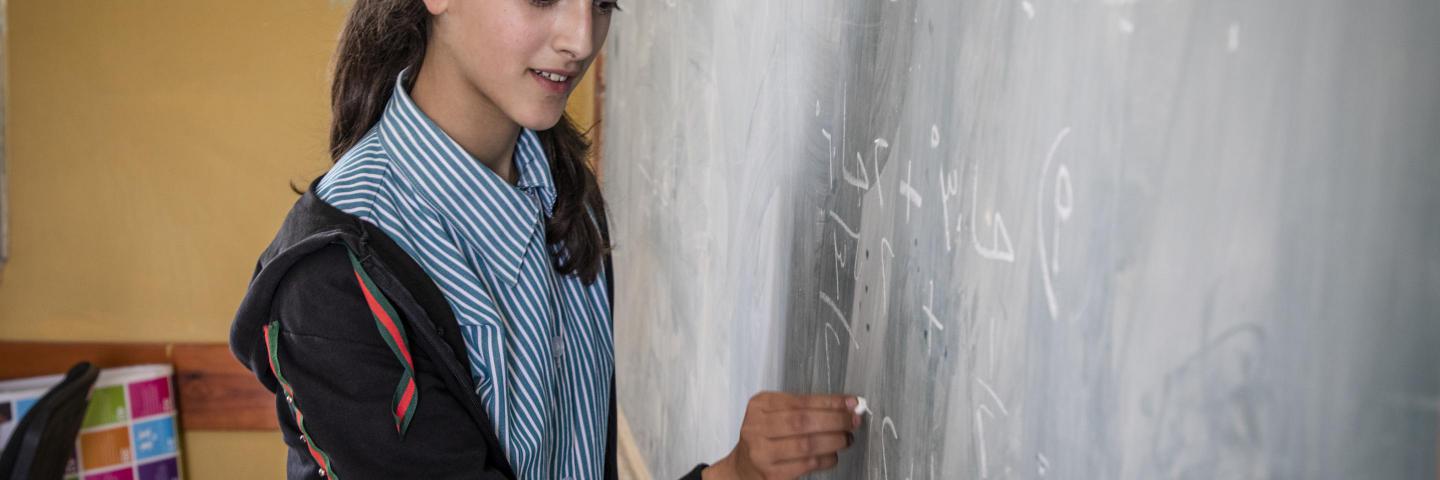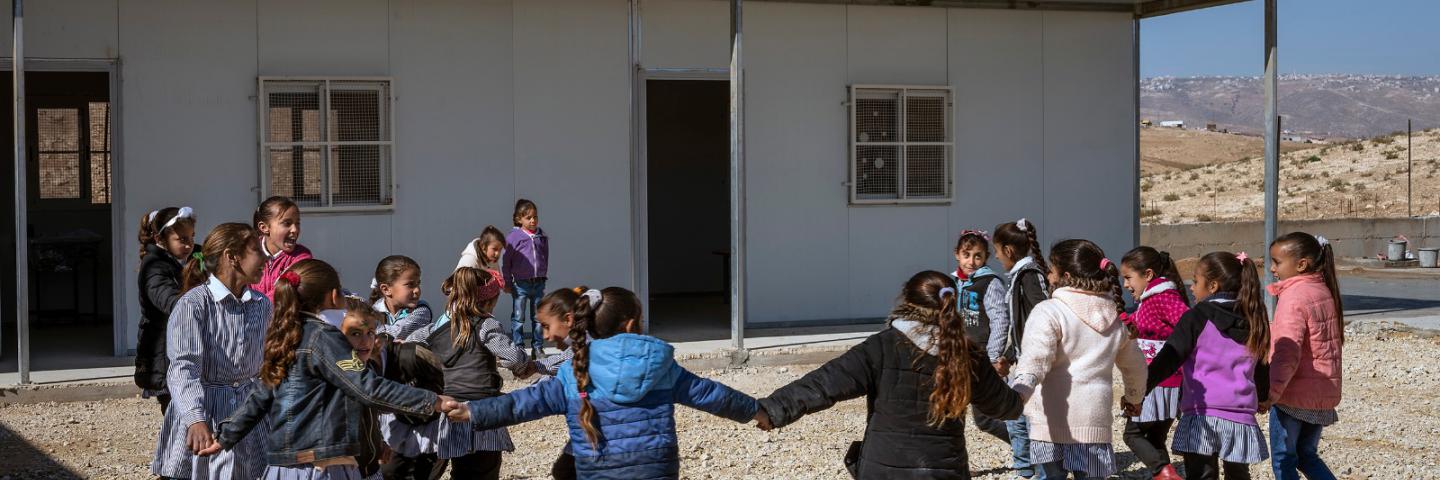

What happens in the earliest years of a child’s life has a significant impact, with 90% of brain development taking place before a child’s fifth birthday. Children who do not receive adequate health care, nutrition, stimulation or are not protected or cared for in their early years are more likely to do poorly in school, impacting their ability to earn a decent wage and entrenching them in a lifetime cycle of inequity and poverty. Early childhood education lays the foundation for numerous aspects of a child’s future. Parents and caregivers need to be supported so that young Palestinian children benefit from quality early childhood education.
Although education is highly valued within Palestinian families, with high enrolment rates for basic education (91.8%M; 93.5%F), many children underperform and drop out of school. Despite the Ministry of Education’s (MoE) investment in improving the relevance and quality of education, the Palestinian school system remains focused on knowledge-based learning, leaving many students inadequately prepared to transition to higher levels of education. At the same time, children in East Jerusalem, Area C and Gaza have lower quality learning environments compared to other areas, with children attending school in unsuitable “apartments”, tents, or temporary structures for example. These inadequate conditions make it even worst for children with physical and learning disabilities to learn adequately.
The protracted crisis in the Occupied Palestinian territory has resulted in unsafe learning environments for millions of Palestinian girls and boys. In Area C, travelling to school is often unsafe for students, and schools are frequently attacked or occupied for military purposes. Additionally, poverty and restricted services limit academic capabilities, putting education at risk.
Save the Children has joined the calls of the international community calling on the Government of Israel to endorse the Safe Schools Declaration and implement the Guidelines for Protecting Schools and Universities from Military Use during Armed Conflict.
Save the Children believes that every child has the right to access quality health, nutrition, and education services. In the occupied Palestinian territory, our Early Childhood Care and Development (ECCD) and Basic Education programmes ensure that marginalized Palestinian children’s learning and development is uninterrupted and supported through increased access to safe, quality, and inclusive ECCD and education services.
Early childhood care and development
Save the Children focuses on providing early learning, responsive caregiving and quality health and nutrition services to mothers and children. We also work to strengthen key service providers, such as kindergartens and primary health care providers, to deliver child centred, inclusive and safe interventions. We also work with local partners and communities to improve Infant and Young Child Feeding (IYCF) practices at the household level by working with mother to mother groups for example in providing support and guidance to other mothers in their communities.
Basic Education
We are working with national partners and the MoE to improve literacy and numeracy outcomes for primary age children. Similarly, we are introducing social and emotional learning in Palestinian schools and kindergartens. We work with stakeholders to expand the rehabilitation work needed for Palestinian schools and to build areas safe for children to play in.
Save the Children works closely with the MoE to ensure that the Palestinian education system more inclusive through capacity building of teachers and MoE staff, provision of assistive devices and improving accessibility of schools. At the same time, we work at the community level to enhance the involvement of the community in their respective schools.

Enabling teachers
Save the Children supports building teachers’ capacities and works to improve their wellbeing through our work with the Palestinian MoE. We also provide support to vulnerable children and their schools to ensure that they are able to return and/or stay in school to learn. We are also working with local partners to support children who are out of school or at risk of dropping out, with remedial education services to help them stay or re-enrol in school.
Education in Emergencies
Access to education in the occupied Palestinian territory is severely compromised due to the protracted occupation and recurrent conflict. Education related violations have been on the rise in recent years and include attacks on schools, military use of schools, threats of attacks against school staff and students, the detention of children on their commute to school but also incidents such as school demolitions. In the Gaza Strip, fifteen years of blockade, combined with multiple escalations of hostilities, have resulted in repeated damage and destruction to an already fragile education infrastructure. As a result, many children are not safe in and around school; school dropout increases and overall, there is learning loss.
Save the Children works with the MoE and humanitarian actors to ensure schools are safe through developing and strengthening policies and systems for school safety and protection, supporting teachers and school staff to protect children in and around school, rehabilitating school facilities or providing school kits to ensure the safe back to school.